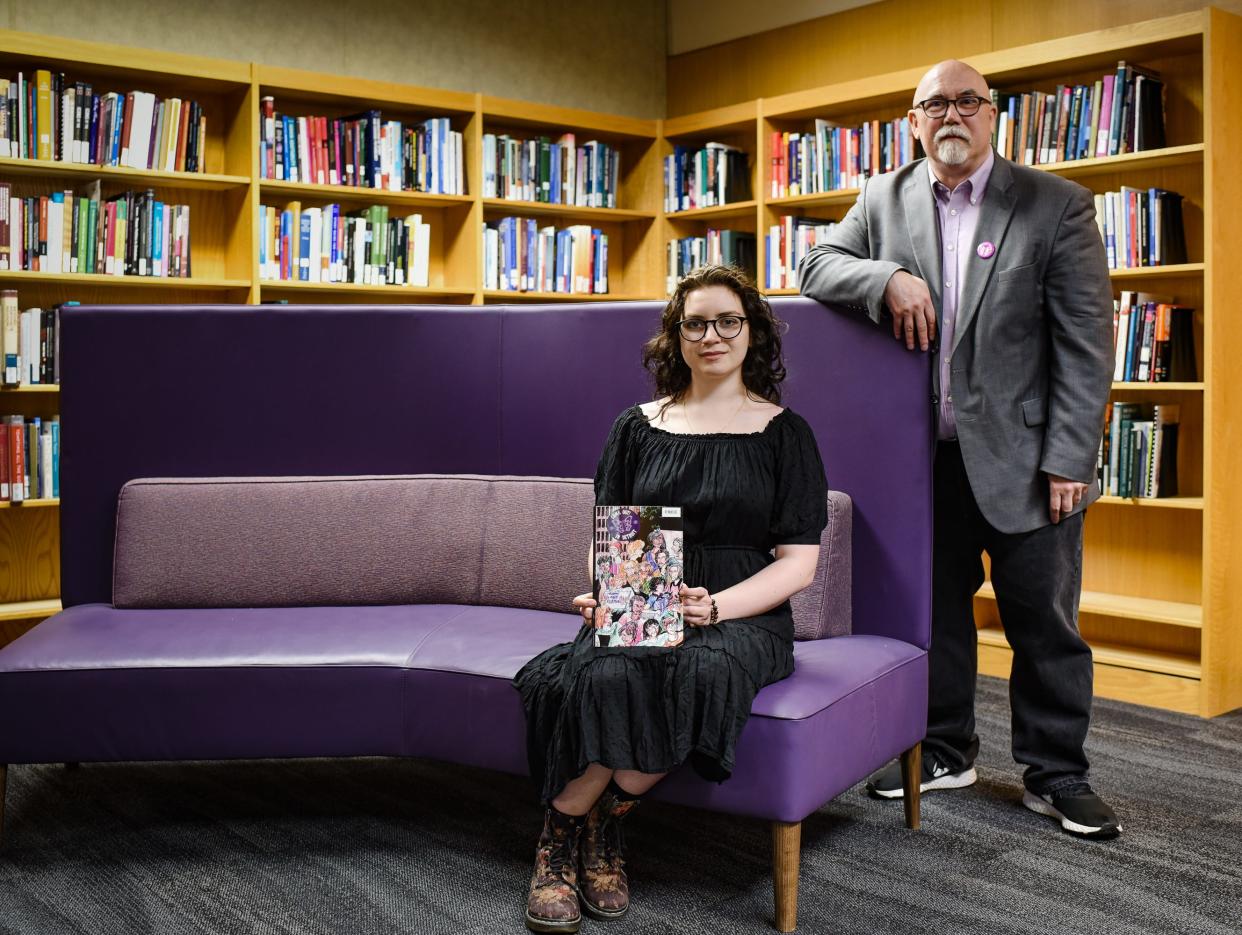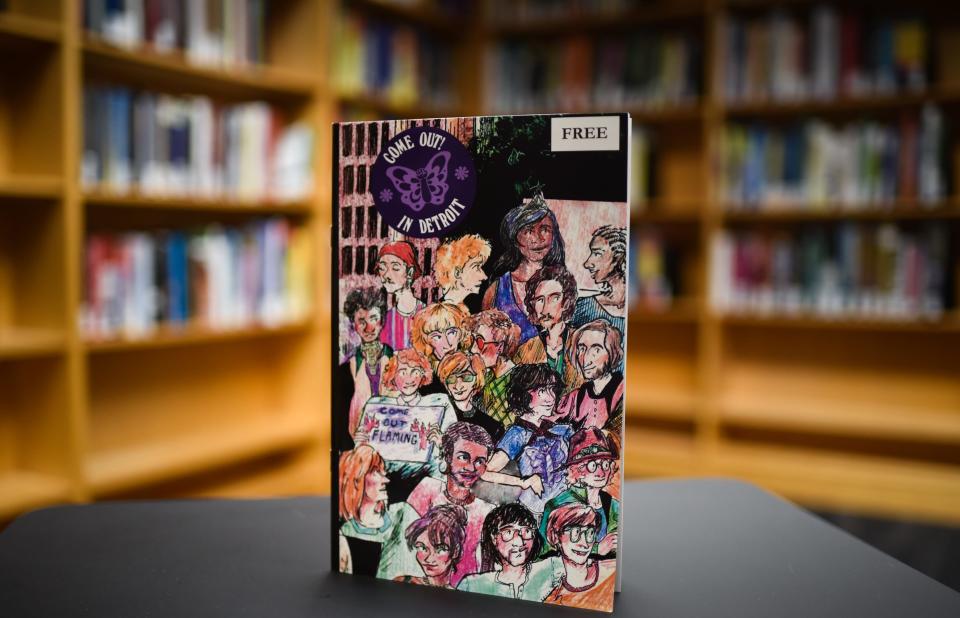Free comic book preserves, celebrates history of Michigan's first LGBTQ Pride march

They came from across Michigan to announce their presence, celebrate their existence and protest for their rights.
And they returned to march again the next year, and the one after that — and every year, continuing today.
Now, 50 years after the inaugural Motor City Pride parade in Detroit, a free comic book is being published to preserve and celebrate the event’s history.
“Come Out! In Detroit,” a collaboration by Ypsilanti-based illustrator Isabel Paul and Michigan State University historian Tim Retzloff, will hit stores June 2. The 28-page comic book chronicles Christopher Street Detroit 1972, the first-ever LGBTQ Pride march in Michigan, Retzloff said.
In order to make the history accessible to as many people as possible, the creators aren't charging for their work; it was funded through donations and grants.
“I knew that there had been this first march that lots of people did not know about, even people producing current marches. I also knew the 50th anniversary was coming up, so that was kind of an early seed of the project,” said Retzloff, an adjunct professor of history and LGBTQ studies at MSU.
Retzloff was familiar with Paul's work through family friends. She had graduated from the College for Creative Studies in Detroit in 2020. When they began working together, the plan was for a four- to five-page comic strip.
“And then as we kept working on the script and fine-tuning the details, we realized, ‘Oh this is going to have to be a lot more than five pages,’” Paul said.
The script is woven together in an oral history format, leaning on interviews with attendees of the march, clips from local newspapers, student publications and underground magazines, diary entries by attendees, and speeches delivered at the event.
The story follows the event from from being organized by LGBTQ groups across the state on college campuses and within local communities, and then shifts into the streets to show the actual march, as well as the dance party and softball games that followed.
In the illustrations, the 200 to 400 estimated marchers carry signs sharing political messages, such as "free gay prisoners," "repeal all anti-gay laws," and "full civil rights for gay people."
The narrative is entirely driven by quotes, which Retzloff said was a choice to “strip (his) voice completely out.”
“Everything’s quoted, so there’s kind of the veracity to it,” he said. “This is true history, which is why we’ve got a page cited.”
Many of Paul’s drawings are based on on black-and-white Polaroid photos from the event. She infused an array of bright colors into the scene's backgrounds and people's clothes, which she said evoked the 1970s for her.
“I wanted the illustrations to have a sense of nostalgia and make it feel like this was in the ’70s, but still make it feel vibrant and alive,” they said. “These were real people who existed and did all this work, and I want them to feel alive for everybody else.”

Though the event occurred in Detroit, the graphic novel includes many references to other Michigan communities, including as Lansing, East Lansing and Ann Arbor.
In particular, the book includes scenes of a drag contest at Joe Covello’s Lounge, a since-shuttered LGBTQ bar in the Lansing area. The narrative includes an excerpt from a Lansing State Journal article that described the event reaching a “social high point” with the crowning of the queen.
In another panel, a State News excerpt notes how students were denied permission to place a banner reading “Gay Pride Week” at the posts outside of the university's Abbot Road entrance.
More: Planned Parenthood of Lansing, Marquette offering barrier-free hormone therapies
More: Drag after Spiral: Lansing scene reemerges in unconventional spaces with club in limbo
The book touches on topics such as police brutality and anti-Black racism, but does so in a way that Paul said keeps it accessible to people of all ages.
“The illustrations convey that these are very nuanced topics that people have to deal with, and people still have to deal with today, without showing that violence … but still communicating this is important,” she said. “This was an aspect of being gay and it still is today.”
The graphic novel's release next week coincides with the start of LGBTQ Pride month. In Greater Lansing, it will be available at The Resistance bookstore, the Salus Center, and on Michigan State University’s campus at The Gender and Sexuality Campus Center.
Contact reporter Jared Weber at 517-582-3937 or jtweber@lsj.com.
This article originally appeared on Lansing State Journal: Free comic book remembers first Motor City Pride parade

